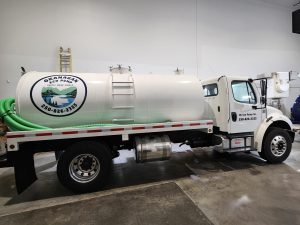Why Septic System Maintenance Matters
A properly functioning septic system is fundamental to the health and safety of your home. While the system typically operates out of sight, neglecting its maintenance can lead to expensive damage, environmental hazards, and significant health risks. Early detection of issues is crucial. By identifying subtle warning signs, homeowners can prevent system failure and avoid emergency repairs. This guide outlines key indicators that signal your septic system may require urgent intervention.
Persistent Slow Drainage
If sinks, bathtubs, or toilets begin draining more slowly than usual, don’t overlook it. This may indicate that the septic tank is reaching capacity or that a blockage is restricting wastewater flow. Over time, solid buildup can obstruct the system’s components, increasing the risk of backups. An inspection can determine whether pumping or repairs are needed to restore proper drainage and prevent structural damage to the system.
Gurgling Sounds in Plumbing Fixtures
Gurgling noises in your drains or toilets are often a symptom of air trapped in the plumbing due to inadequate flow. This may stem from a clogged pipe or an overloaded tank. These sounds should not be ignored—they’re a mechanical red flag that your system isn’t venting correctly and could be under strain. A licensed septic professional can assess the source and recommend corrective measures before complications escalate.

Sewage Backups in the Home
One of the most serious indications of septic failure is the presence of sewage backing up into indoor plumbing. If wastewater begins to surface in toilets, bathtubs, or floor drains, immediate action is essential. This typically signals that the tank is overfilled or the drain field is compromised. Backups pose not only sanitation concerns but also significant health risks. Emergency septic service is necessary to resolve the issue and prevent further contamination.
Noticeable Foul Odors
Unpleasant odors—particularly near the septic tank, drain field, or inside the home—can be traced to gas emissions from improperly treated waste. Hydrogen sulfide, commonly responsible for a “rotten egg” smell, is a sign that the septic system is malfunctioning. Whether due to leaks, blockages, or tank overflow, these odors require immediate inspection. Ignoring them can result in increased exposure to harmful bacteria and gases.
Standing Water or Soggy Soil Around the System
If water is pooling near the tank or drain field, or the ground feels unusually soft and wet, it may mean your septic system is leaking. A functional system allows wastewater to percolate safely into the soil. When saturation occurs, it typically reflects a blocked or failing drain field. This can lead to surface contamination and pose environmental hazards. It’s especially concerning if observed during dry weather, as it signals that water is not being absorbed properly.
Abnormally Lush Grass Over Drain Field
While healthy grass is desirable, an unusually green or fast-growing patch directly above your drain field could indicate excess moisture from leaking effluent. The nutrients in untreated wastewater act as fertilizer, but their presence on the surface suggests a breach in the system. Though visually appealing, this symptom often precedes more serious issues like groundwater contamination or drain field failure. Prompt evaluation can prevent further leakage.
Water Contamination in Nearby Wells or Streams
Homeowners relying on private wells must remain especially vigilant. Elevated levels of coliform bacteria or nitrates in well water are common indicators of septic seepage into groundwater sources. Likewise, algal blooms or cloudy water in nearby ponds may signal nutrient leakage from a failing system. Regular water testing and immediate septic assessments are critical for safeguarding public health and maintaining environmental compliance.
The Importance of Routine Septic Maintenance
Routine septic maintenance is not optional—it’s a necessity. Scheduling professional inspections every 3 to 5 years, along with regular tank pumping, ensures the system continues to operate effectively. Awareness of warning signs allows homeowners to address minor problems before they become emergencies. Partnering with reputable service providers, such as Ok Eco Pump, ensures your system is maintained to regulatory standards and helps extend its operational life.
Q&A
What are the warning signs of a failing septic system?
A failing septic system often shows several early warning signs that should never be ignored. These include slow-draining sinks, tubs, or toilets; frequent gurgling or bubbling noises in pipes; foul sewage-like odors inside or outside the home; standing water or soggy patches near the septic tank or drain field; and unusually lush or green grass in specific lawn areas. In more severe cases, homeowners may experience raw sewage backing up into plumbing fixtures. Each of these symptoms points to potential system overload, blockages, or drain field failure, and requires immediate attention from a septic professional to avoid environmental damage and costly repairs.
Why is my toilet gurgling and draining slowly?
Gurgling toilets and slow drains typically indicate that air is being trapped in the plumbing system due to partial blockages or septic tank overload. This air disruption causes inconsistent water flow and unusual bubbling sounds. These issues can stem from buildup in the pipes, a full septic tank, or poor ventilation. While occasional gurgling may occur due to minor flow disruptions, persistent noises and drainage problems usually point to a larger septic issue. Having the system inspected early can prevent a full backup or system failure.
What does standing water around a septic tank mean?
Standing water or soggy soil near a septic tank or drain field often means the system is overloaded, leaking, or failing to properly absorb wastewater. This could result from clogged pipes, a saturated drain field, or structural damage to the tank. When wastewater can’t filter through the soil as intended, it may rise to the surface, posing serious health and environmental hazards. This is especially concerning during dry weather, as the water should not be present. Immediate inspection is essential to determine the root cause and prevent contamination or further system degradation.
Is sewage smell near my home dangerous?
Yes, strong sewage odors are not just unpleasant—they can signal dangerous conditions. These smells often result from hydrogen sulfide and methane gases escaping due to leaks, system overloads, or inadequate ventilation. Prolonged exposure to these gases can cause headaches, nausea, and respiratory issues. Additionally, the smell often indicates that untreated or partially treated wastewater may be seeping into the environment, increasing the risk of bacterial contamination and health concerns. If persistent odors are present, a licensed septic technician should inspect the system immediately.
How often should a septic tank be pumped?
A septic tank should generally be pumped every 3 to 5 years, though frequency depends on household size, water usage habits, and tank capacity. Larger households or homes using garbage disposals and heavy water appliances may require more frequent service. Regular pumping removes solid waste buildup that, if left unchecked, can clog the system, reduce efficiency, and cause backups or drain field damage. Scheduling periodic inspections helps determine the best pumping schedule based on your specific usage and ensures long-term septic health.
What causes green patches over a drain field?
Abnormally lush, green grass or spongy areas over a drain field usually indicate a leak or system failure. Septic effluent contains nutrients like nitrogen and phosphorus, which act as fertilizers. When this wastewater escapes the system due to cracks, clogs, or oversaturation, it enriches the soil above, resulting in thicker, faster-growing grass. While it may appear harmless, this condition often means that untreated wastewater is surfacing—posing risks to health and the environment. Prompt evaluation is critical to prevent further leakage or groundwater contamination.
How can septic issues affect well water?
Septic system failure can lead to wastewater leaching into the soil and contaminating nearby wells, streams, or ponds. Private well owners should test regularly for harmful bacteria like coliforms, E. coli, and elevated nitrate levels. These contaminants are linked to gastrointestinal illnesses, infections, and long-term health risks, especially for children and the elderly. If septic effluent reaches groundwater or surface water sources, it not only affects household water quality but also contributes to broader environmental pollution. Early detection and repair of septic issues are vital to protect water safety.




